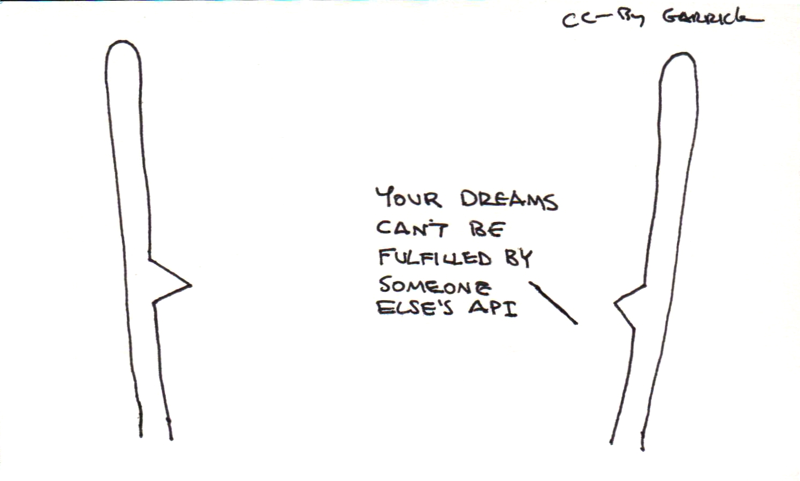A few weeks ago, I met with a local small business owner. We first met back when we were both solo and have met for coffee every 6 months or so since. He now maintains an office downtown full of employees. Towards the end of our time together, he asked which social media services I …
Category Archives: Social Networks
Taking Stock
“So if you are in the position to have somebody else handle your flow while you tend to your stock: awesome. But that’s true for almost no one, and will (I think?) be true for even fewer over time, so you need to have your own plan for this stuff.” – Robin Sloan A continuous …
Two Prices
“This is, after all, the way of our new product-based civilization — in order to participate as a citizen of the social web, you must yourself manufacture content. Progress requires that forms must be filled. Thus it is a critical choice of any adult as to where they will perform their free labor.” – Paul …
All The Lonely People, Where Do They All Hang Out?
“Both services are essentially time sinks designed in both cases to stroke the souls of thousands of lonely people. I use them both, to be sure, but are they changing anything with these additions? Are they improving our lot in life?” – John Biggs
Poke
“What does Facebook tell China when they ask if Facebook can be used to overthrow governments?” – Dave Winer This question – on its face – is good. Load in all the U.S. media stories about Facebook being used to organize government revolts, the value of China to the U.S. economy, Wikileaks, and Dave’s work …
Stinkin’ Flair
List of Foursquare Badges FrontierVille Badges: Learn how to earn every stinkin’ badge right here List of Kongregate Badges Introduction to Merit Badges What are HuffPost Badges
Terms of Services Kinda Like Open Licenses – But Evil
The Combined Arms Research Library has a good post on the upside of the latest version of Twitter’s terms of service (“Twitter can do WHAT with your photos?“) . The language is very similar to the MIT/X11 License in that the copyright holder is licensing their work to others and the licensees can do as …
Continue reading “Terms of Services Kinda Like Open Licenses – But Evil”
Killing Time
This morning, even before my first cup of coffee – I went through my stable of Twitter accounts and started deactivating them. Easier and more straightforward than I expected. That was before Leo Laporte’s Buzz Kill post hit my radar: “It makes me feel like everything I’ve posted over the past four years on Twitter, …
Facebook is the Future of Television
“But in the meantime the Net’s going to look way too much like the last days of TV. Which it will be.” – Doc Searls This morning, I heard a broadcast radio discussion on the future of television . First off – the host made the assumption that cable television is some sort of necessity. …
Second Guessing Social Media Buttons
“What if I had put Myspace links on, or Digg links on my stories in 2005? When you go back through the archive those would seem crazy, almost defacing of the content. Don’t those things belong in toolbars or bookmarklets?” – Dave Winer And that’s just one problem with the proliferation of ‘twitter this’, ‘Facebook …
